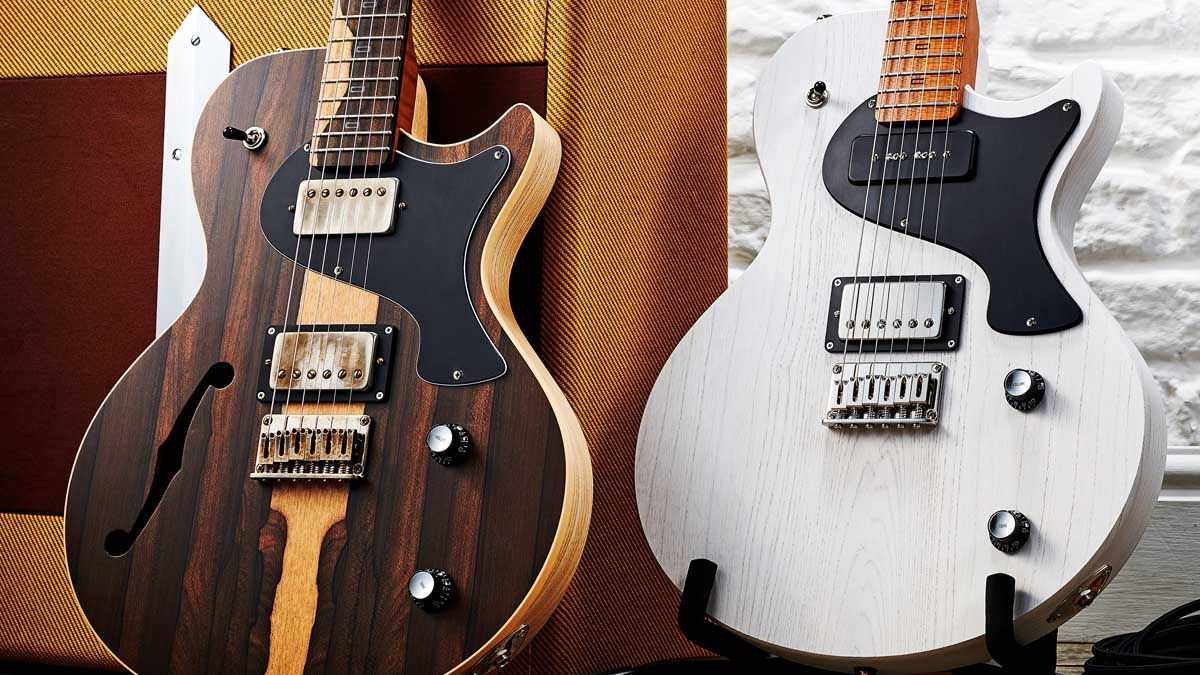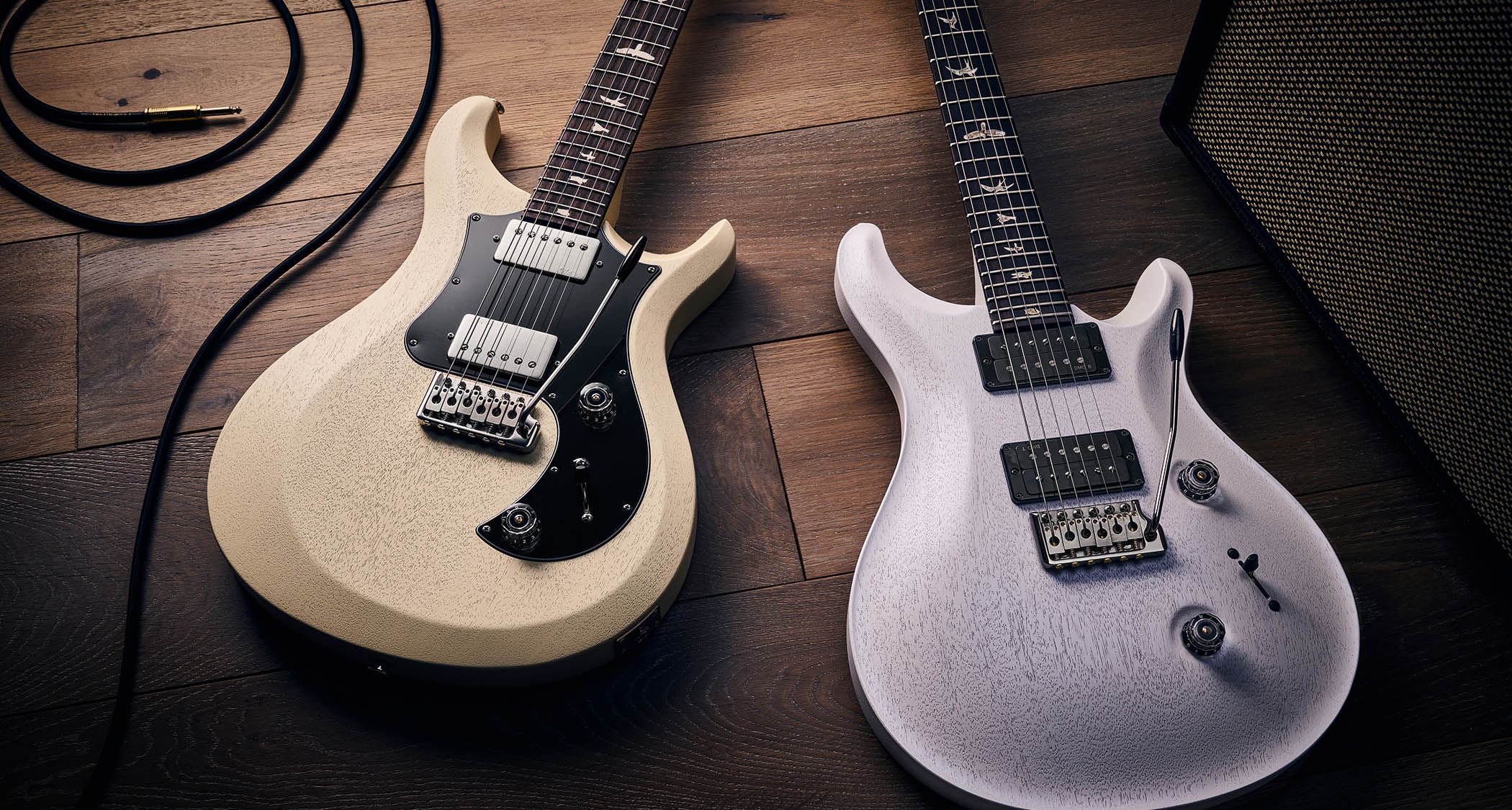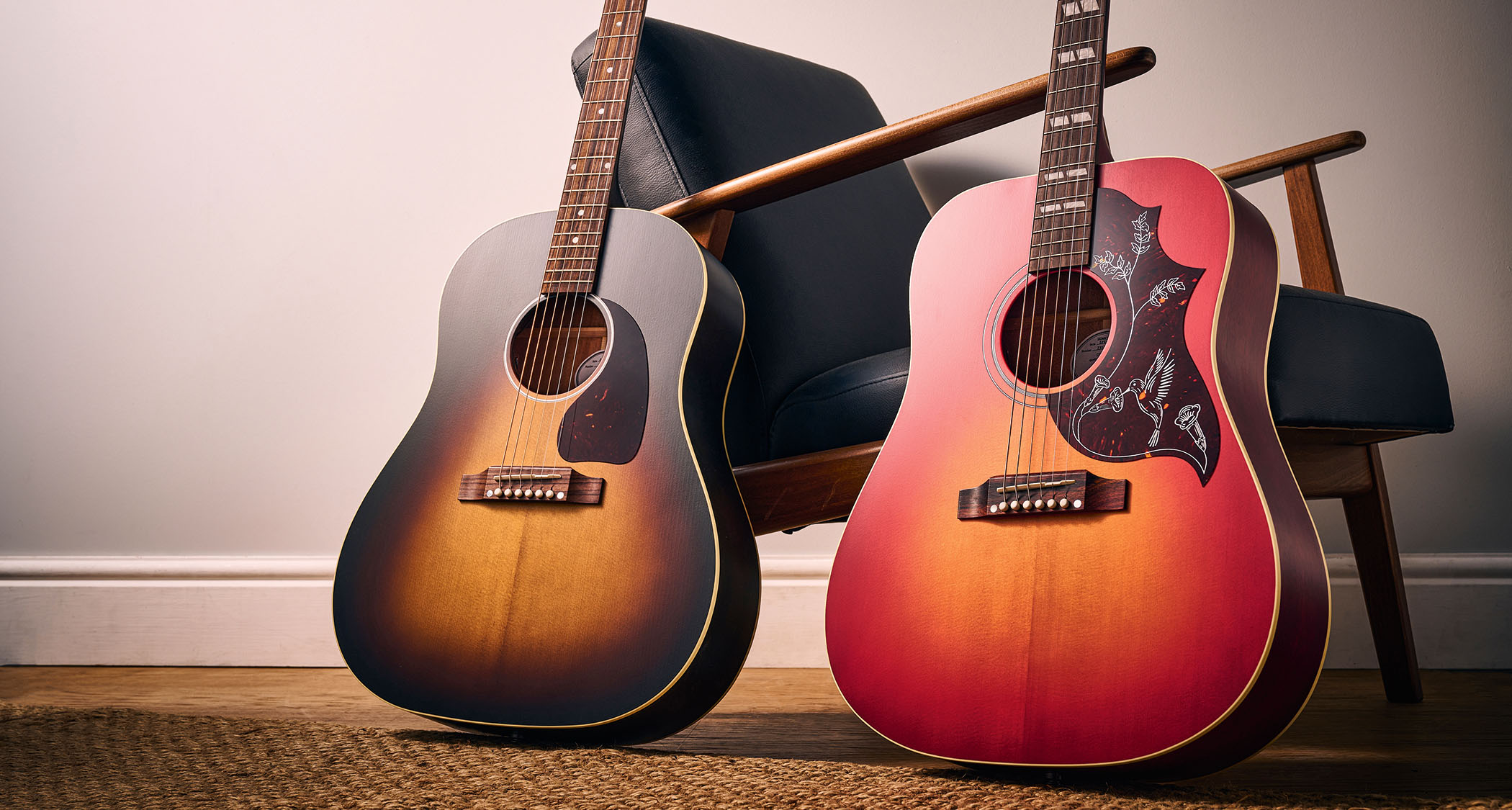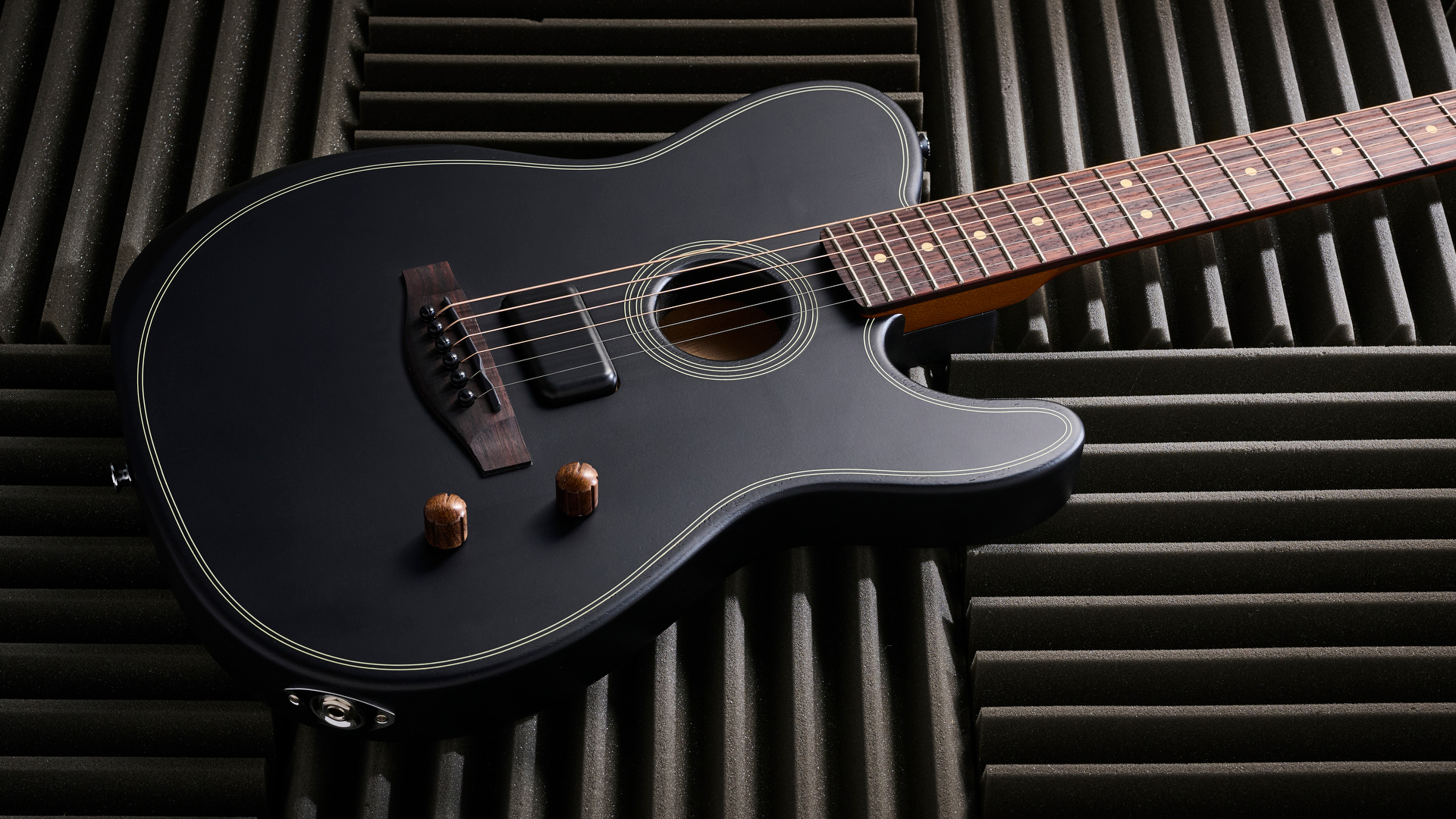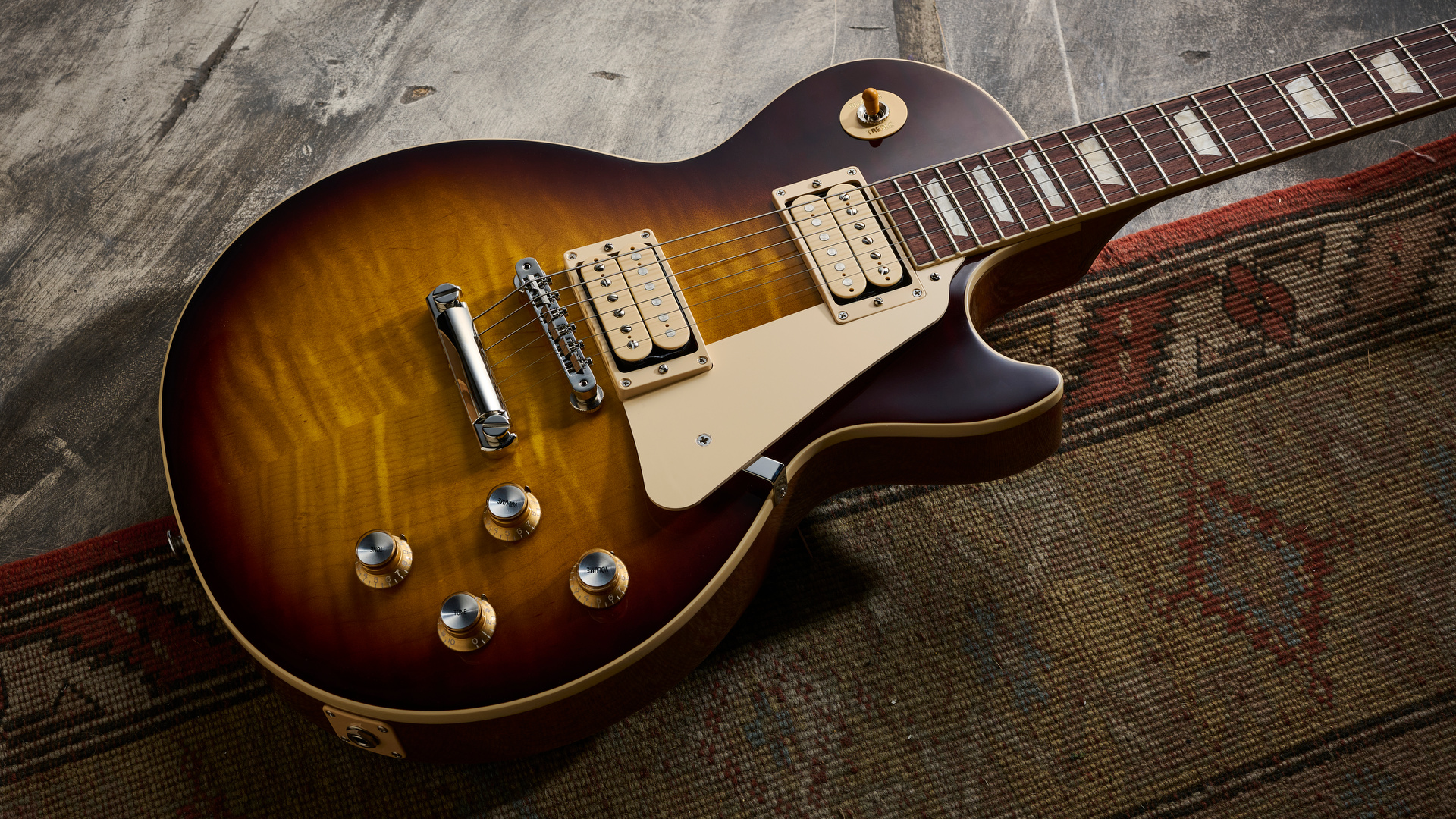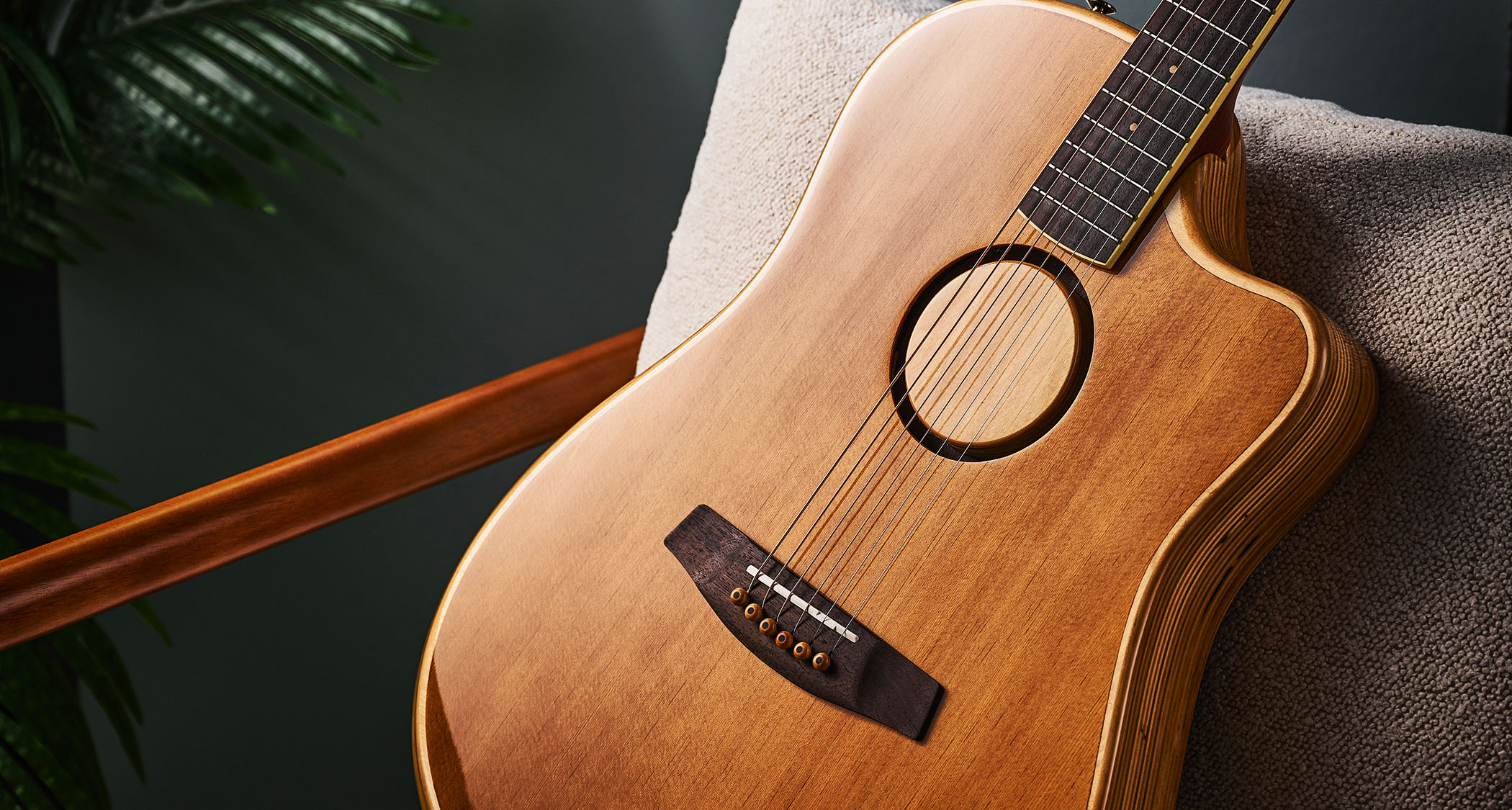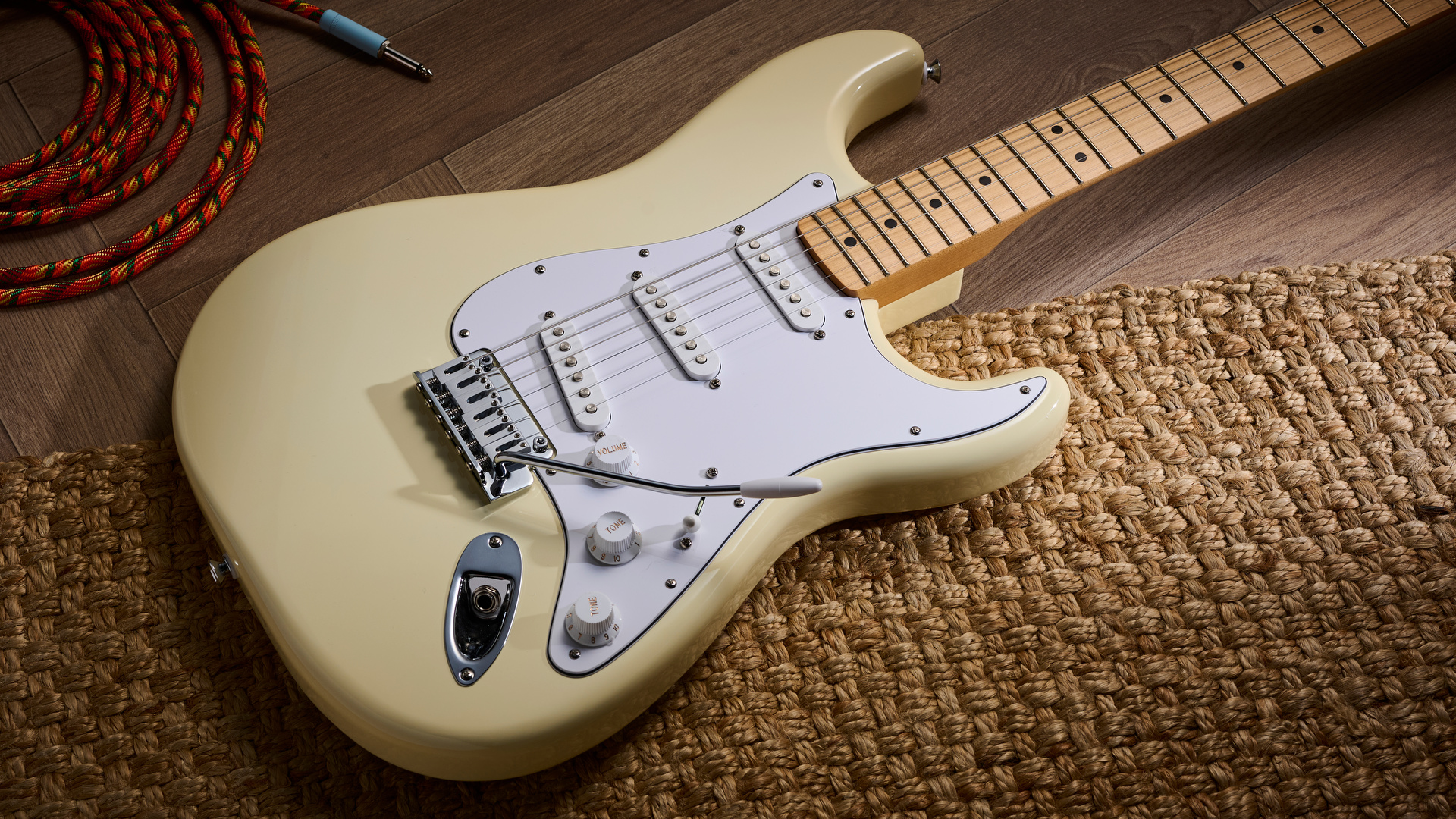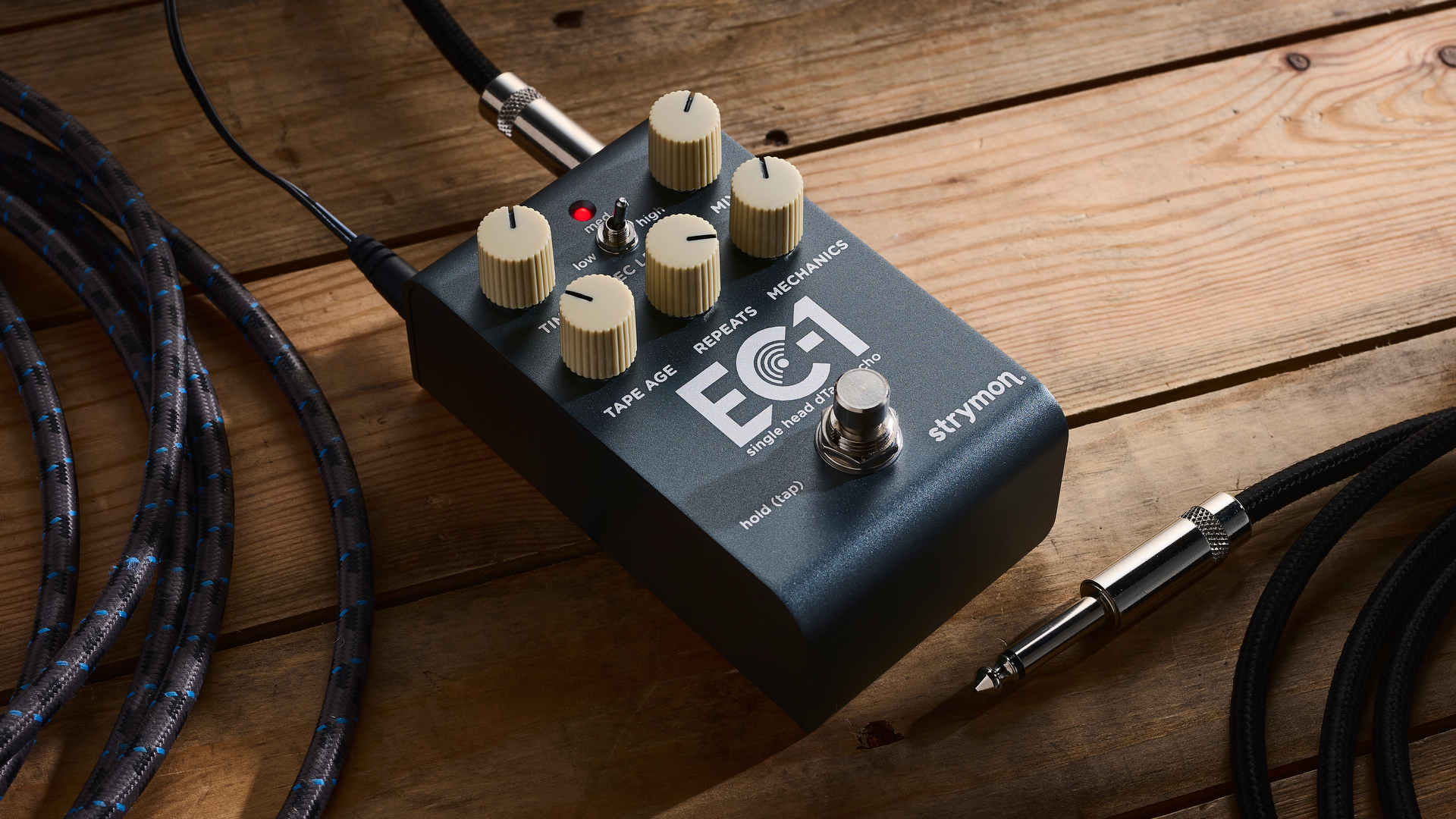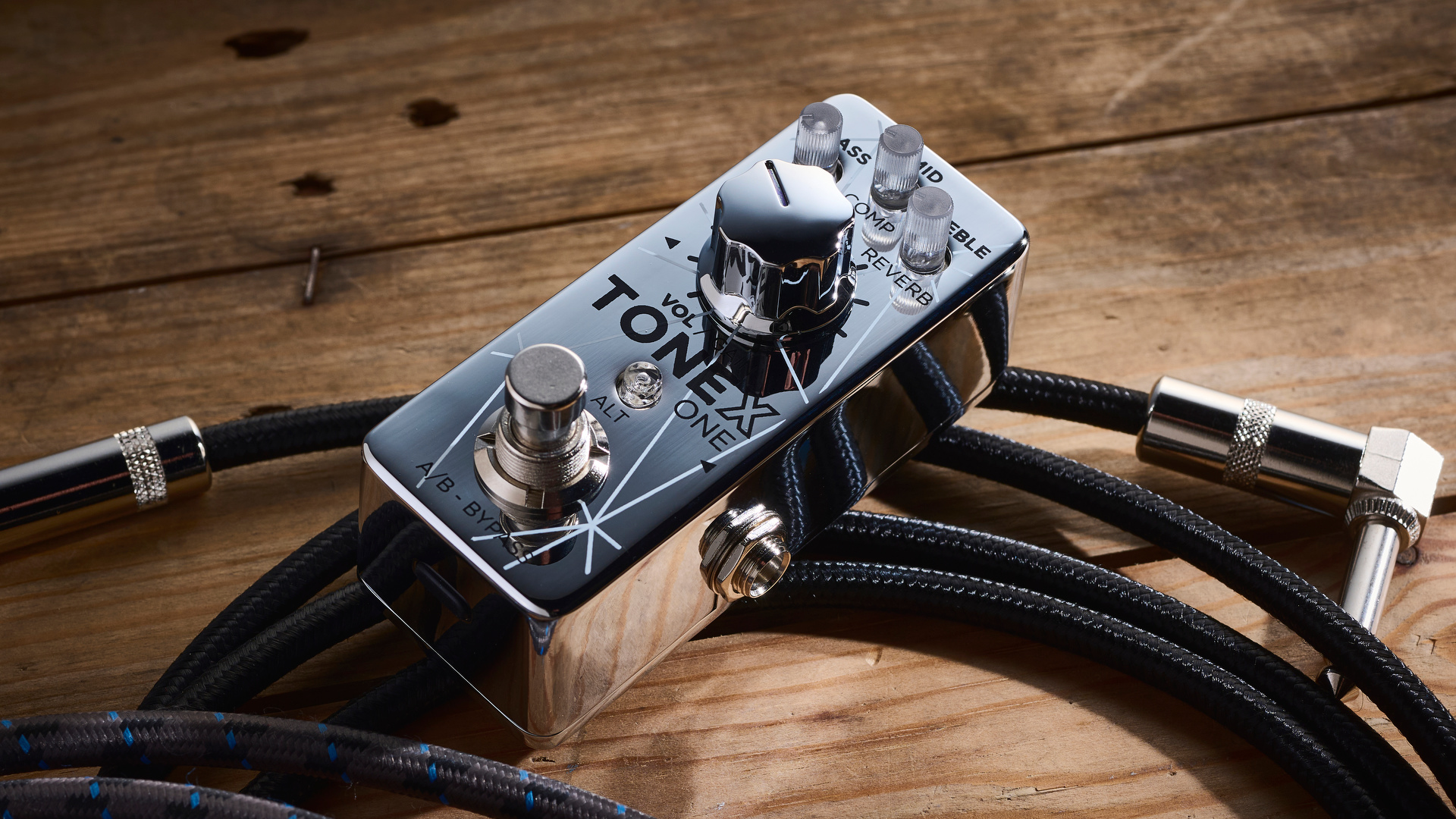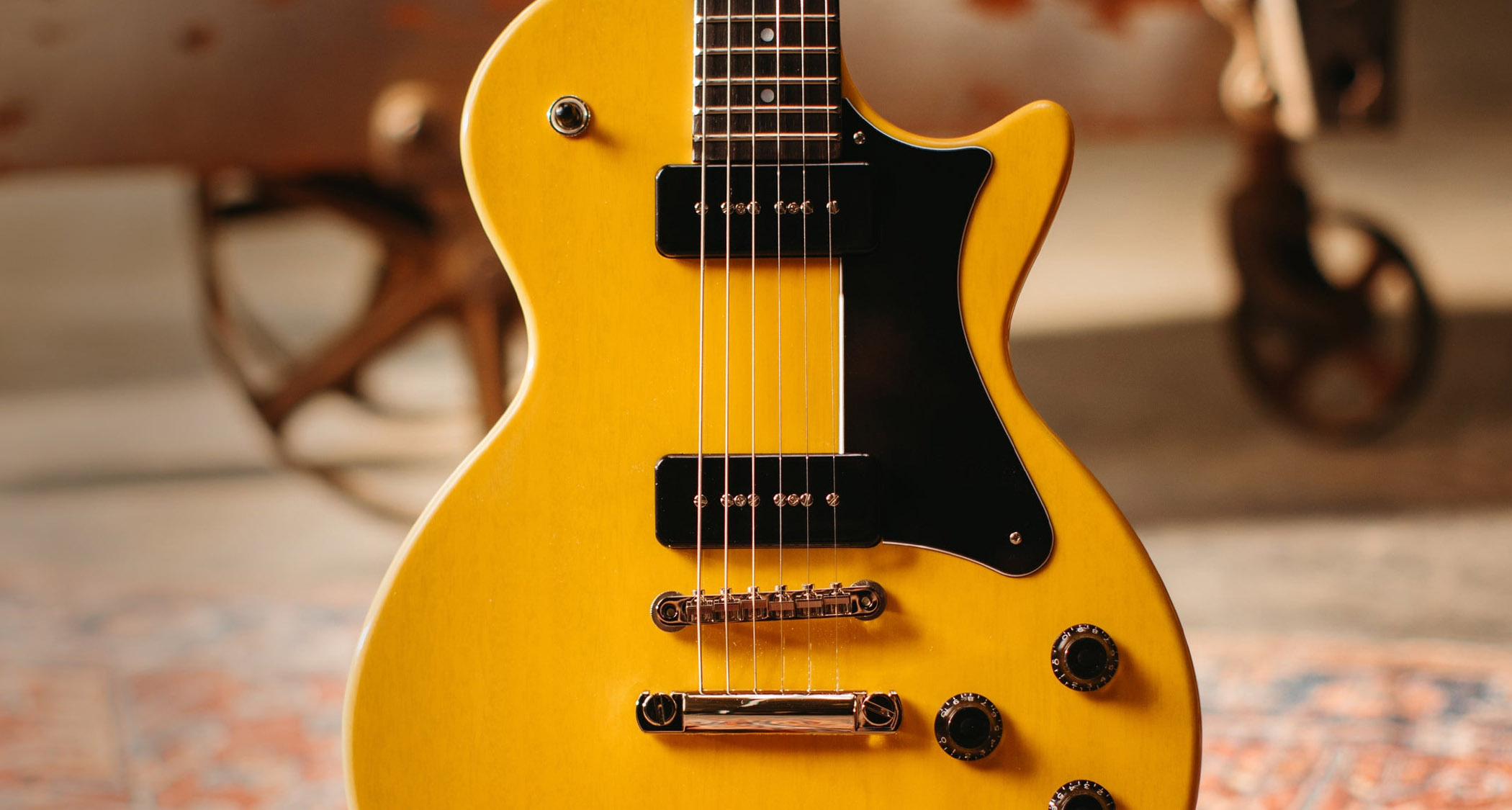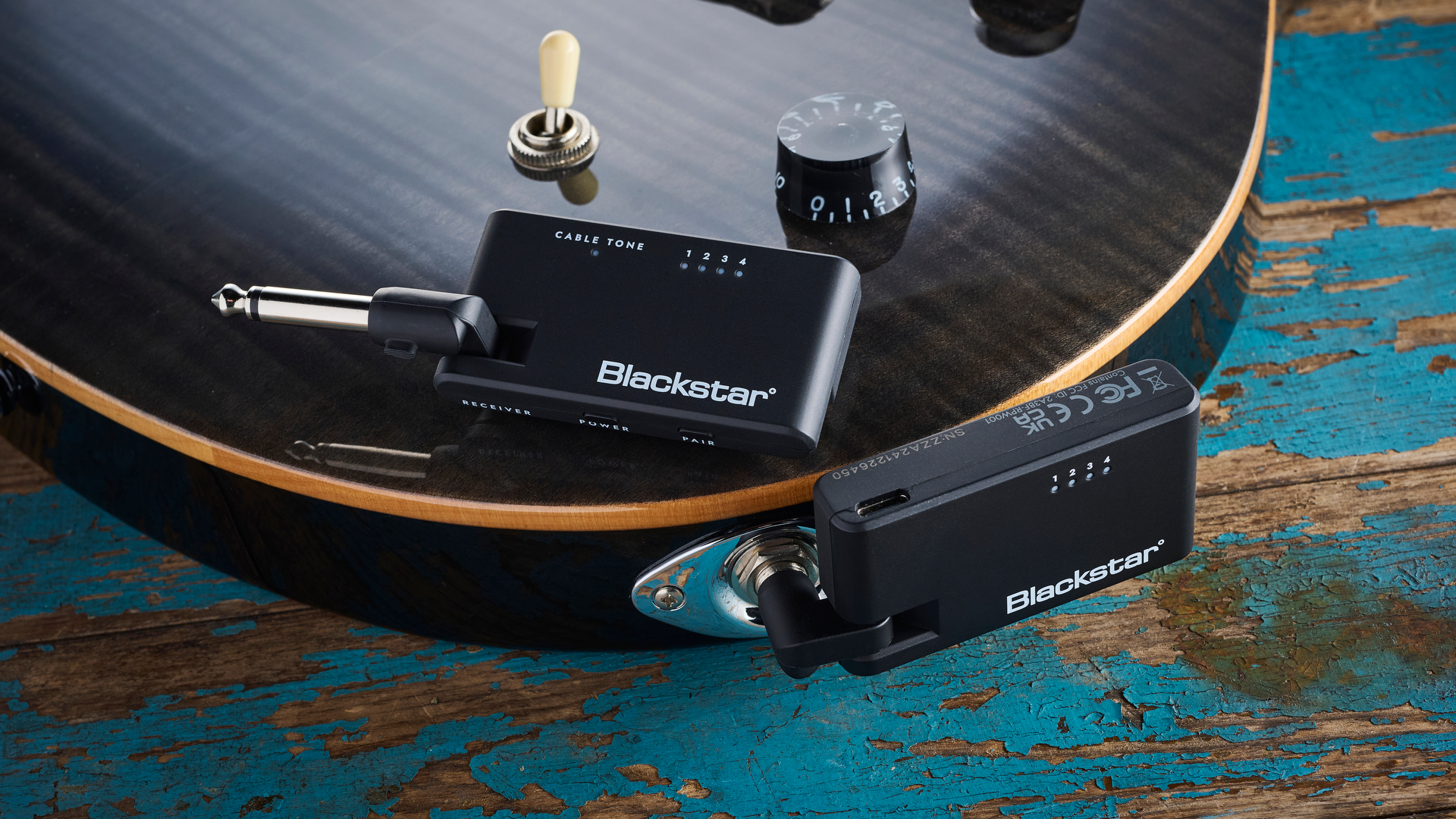Guitar World Verdict
The Carey Standard and Carey Custom 10th Anniversary represent the affordable luxury and exotic custom vibe that PJD can offer. The stripped down and immaculate Standard offers great value, while the Custom has a grown-up voice and stunning details.
Pros
- +
Standard wins on affordability.
- +
Precise details and lightweight build.
- +
Great neck.
- +
Wonderful vibrant, quality voice.
- +
Custom has a nuanced, mature voice.
- +
It has an exotic but far-from-posh vibe.
Cons
- -
The Standard has limited colour options.
- -
Its chamfered body edge won’t be everyone’s cup of tea.
- -
The Custom's sharp-edged binding is an acquired taste.
- -
As ever, quality guitars such as the Custom cost big money.
You can trust Guitar World
It’s been a busy year for PJD Guitars. Aside from a factory move, the company’s founder, Leigh Dovey, has expanded his workforce to include Zach Pygall.
“Zach does most of the work when it comes off the CNC machine, refining the necks and doing the sanding,” Leigh tells us. “I still look after wood selection, milling up the wood and kind of getting everything as it should be – the crucial work is so often at the start, the right materials and stuff. Then we have Andy Jackson who has recently joined us; Andy mainly does assembly, wiring and setups.”
A new spray booth was literally being installed as we spoke to Leigh. This will bring finishing in-house and the team is aiming for a capacity increase of between 80 and 100 per cent.
As Leigh moved into his production stride back in 2017, a tie-up with Guitar Galleries meant the retail store took on sales and marketing in return for being the exclusive outlet. “Now we’re moving forward with some other dealers across the UK,” says Leigh, while admitting he’s poached Mike Dunn from Guitar Galleries to run the sales and business side of PJD.
The Carey is shaping up to be an extremely flexible production platform, in the Standard format or more exotic Anniversary vision
What hasn’t changed is the superbly detailed and crisply built instruments. Our two review samples bookend the Carey Elite – PJD’s core model – in both style and price.
The new Standard is a big-hitter on price alone, bearing in mind it’s made in the UK with a chambered, nitro-finished swamp ash body, quarter-sawn roasted and lightly figured neck and fingerboard, Gotoh hardware and Bare Knuckle Boot Camp pickups.
It’s deliciously light, too, and comes with a PJD logo’d Hiscox case. Like many modern makers, Leigh pulls influences from benchmark designs to create a seemingly familiar look that’s easy on the eye.
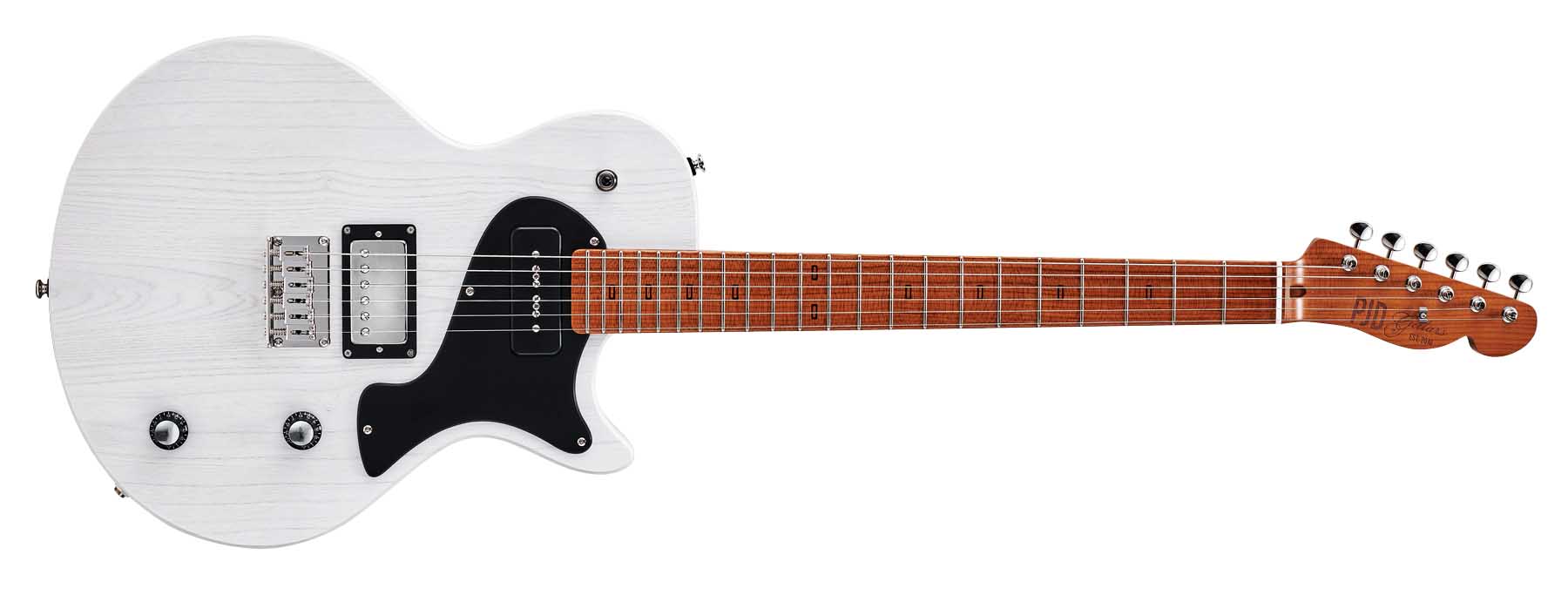
The Carey model starts with a Fender-scale bolt-on neck that is a beautifully caramel-coloured piece of quarter-sawn roasted maple with a separate fingerboard of the same stuff. The fingerboard has some subtle flecking punctuated by the unique acrylic rectangle inlays and, of course, the 22 frets.
Detailing is superb: from the fretting – with each fret end beautifully domed – to the perfectly cut bone nut.
Like many modern makers, Leigh pulls influences from benchmark designs to create a seemingly familiar look that’s easy on the eye.
The Carey’s slightly oversized single-cut light ash slab body – with no contouring back or front – apes a Fender White Blonde with its translucent bright-white finish. There’s nothing to tell you it’s a chambered construction aside perhaps from the weight, which at 2.63kg (5.79lb) is one of, if not the lightest we’ve had on test over the past few years.
It’s lighter than our 10th Anniversary model and also the previous Carey Elite we looked at in issue 451, which was hardly heavy at 2.74kg (6lb). There is a utility feel to the edges, though, which aren’t so much radius’d as chamfered. In stark contrast, the Carey Custom 10th Anniversary – one of 10 – uses the same foundation but adds this quite spectacular bookmatched ziracote top and fingerboard.
Dark chocolate in colour and vividly striped in the main, it’s contrasted by the light biscuit-coloured sapwood. Ziracote hails from Central America and Mexico, and you’re more likely to see it used for the back and sides on a high-end acoustic guitar. It’s not just a veneer facing, either, but a pretty substantial 6mm-thick top that, acoustically, gives a noticeably different response: a little rounder and firmer in the high-end.
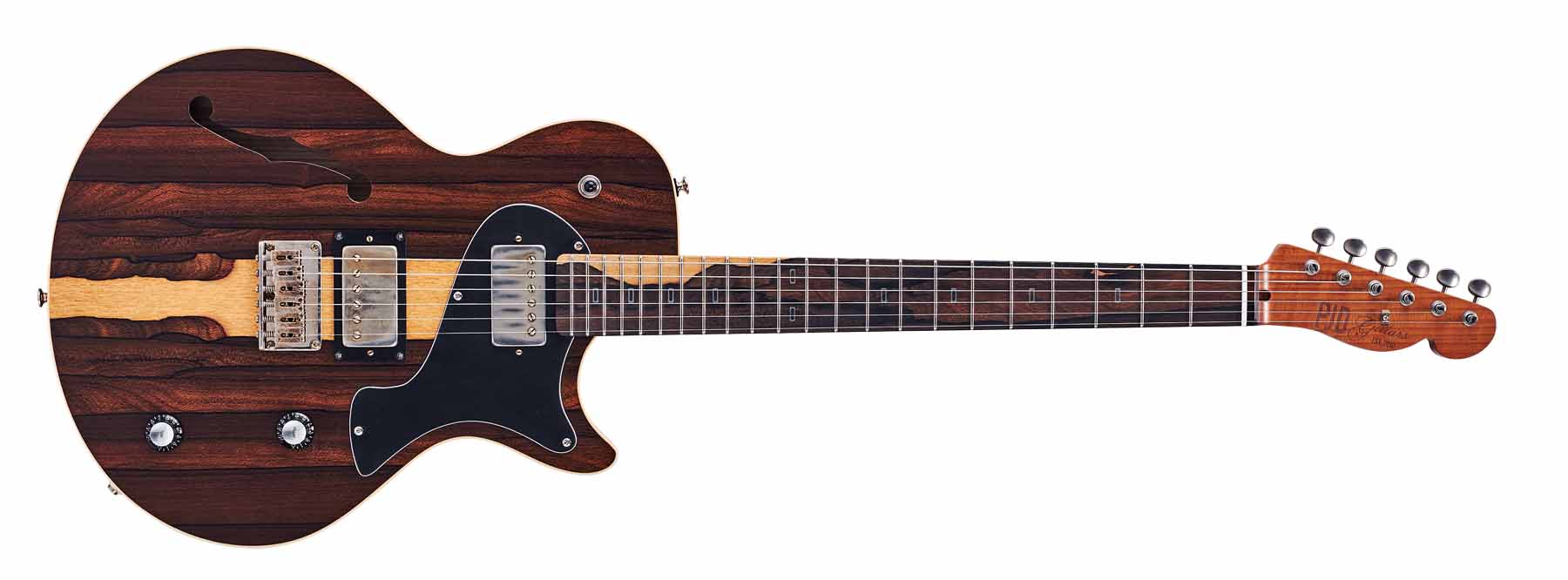
As we’ve seen before on the Carey Elite, the top is edge-bound with quite a deep (10mm) single-ply cream binding, again with quite a precise edge to it. The back is swamp ash – although left natural here – and you can really feel the grain. Here, too, the switch and control backplates are ziracote. To complement its elevated status, the neck – again quarter-sawn – has a beautiful tiger-striped flame.
Other differences include the slightly contoured body heel, still with the same inset Allen key bolts that screw into threaded inserts in the neck, and the Gotoh hardware and Bare Knuckle pickup covers are tastefully aged.
To support its top-of-the-line status we have Bare Knuckle’s classic Mules, the neck pickup like the Standard’s P-90, suspended in the Les Paul Junior/Special-style pickguard that, here, is a black/white/black laminate, as opposed to the single black ply of the Standard. It’s an exotic piece but remains quite unfussy in its virtually unfinished-looking satin-nitro finish.
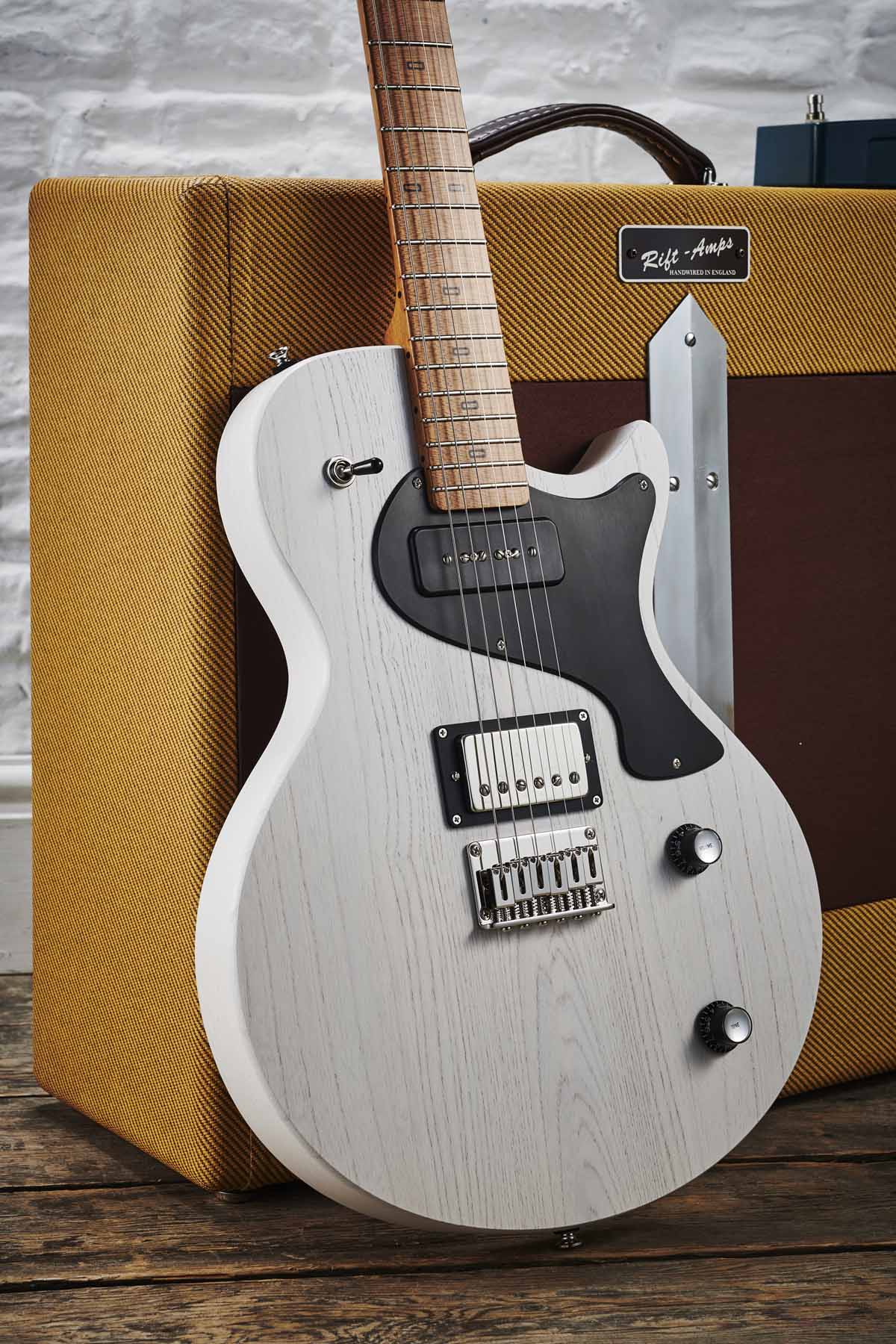
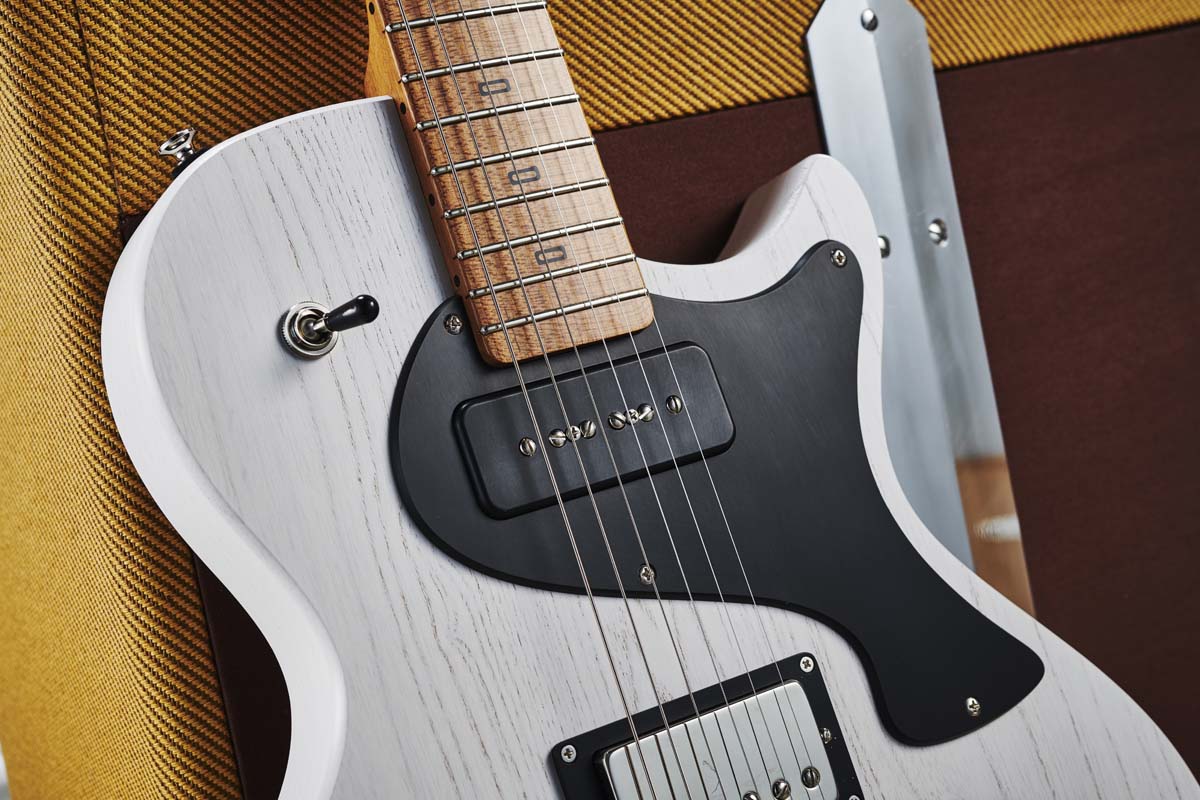
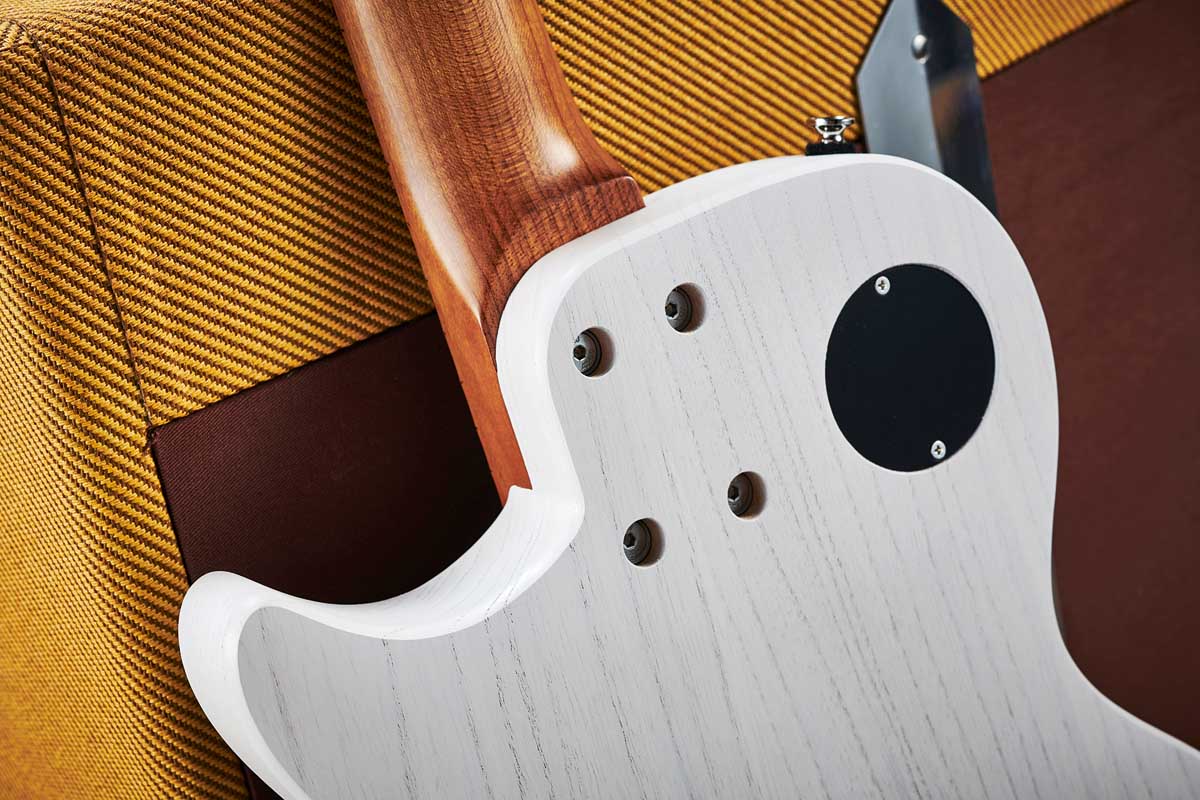
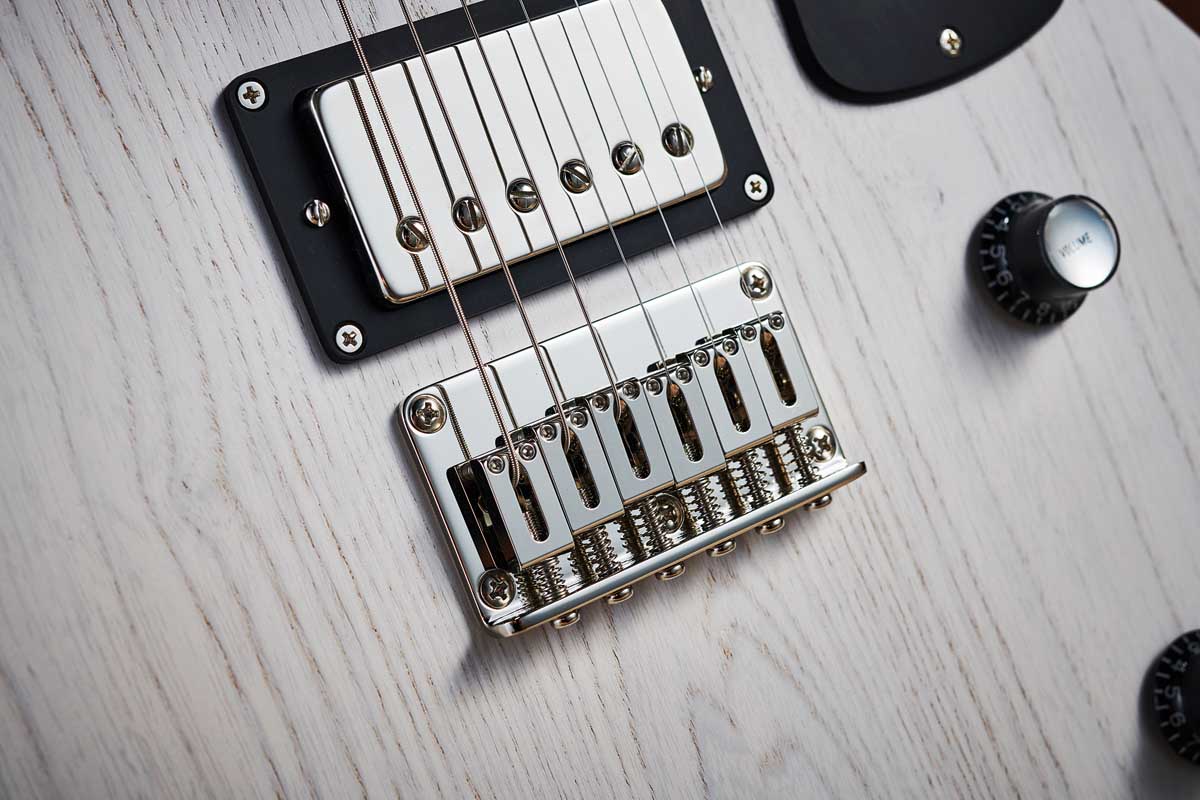
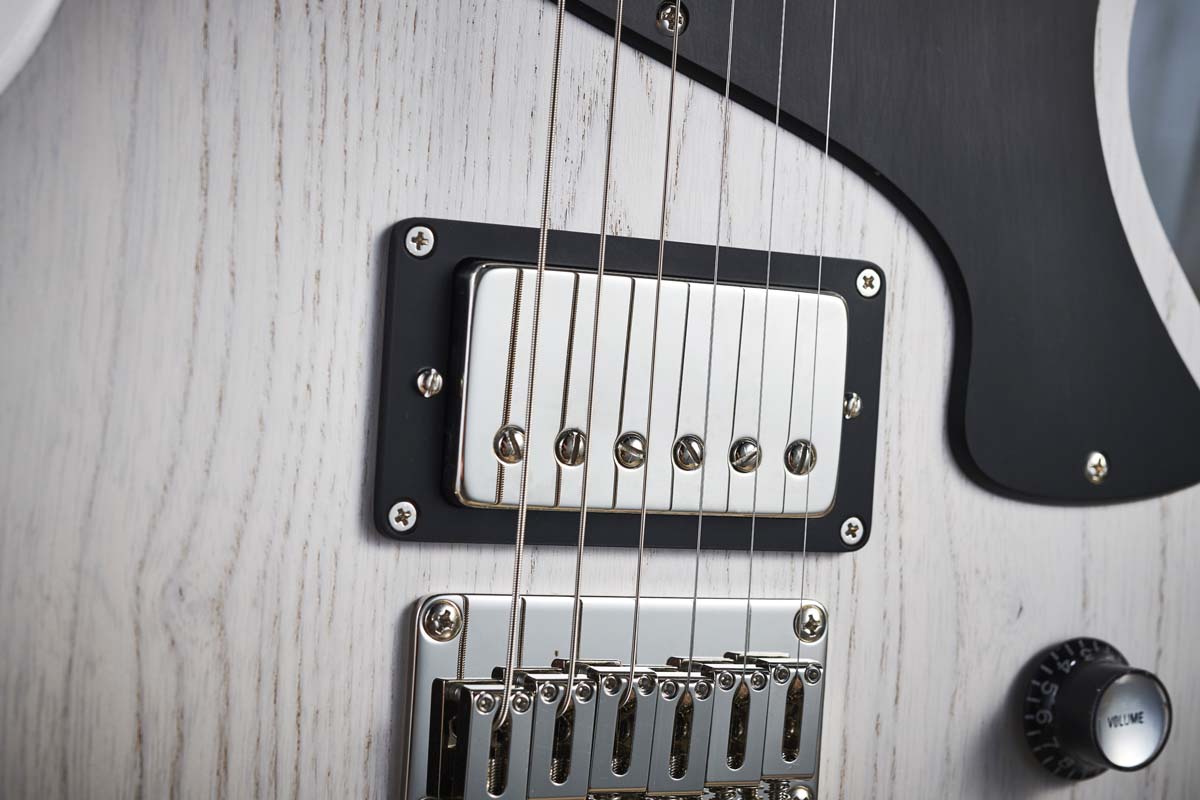
Feel & Sounds
Both guitars have virtually identical necks, what PJD calls its ‘standard C’ profile. It’s a fairly mainstream shape but with little taper: 22.1mm at the 1st fret and 23mm by the 12th, so the lower positions feel quite big and the upper positions feel a little slimmer, as if your hand is expecting a little more meat.
The C profile has a nice vintage-y full-shouldered feel in lower positions and seems like it’s a little shallower as you move up.
The medium/tall wire certainly doesn’t feel too large, while the well-rounded fingerboard edges temper the ‘modernism’ of the 254 to 305mm (10- to 12-inch) compound radius. No, it doesn’t feel quite like a classic old Fender but it certainly captures some of that worn-in vibe.
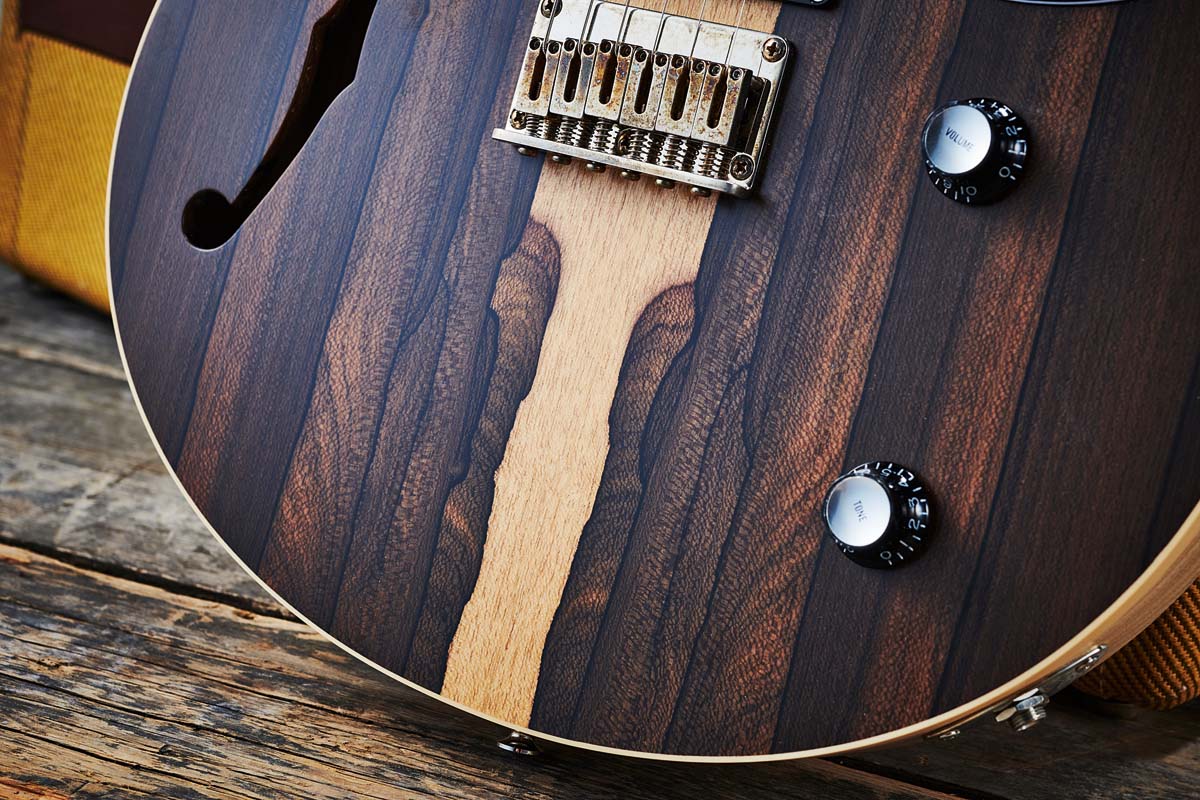
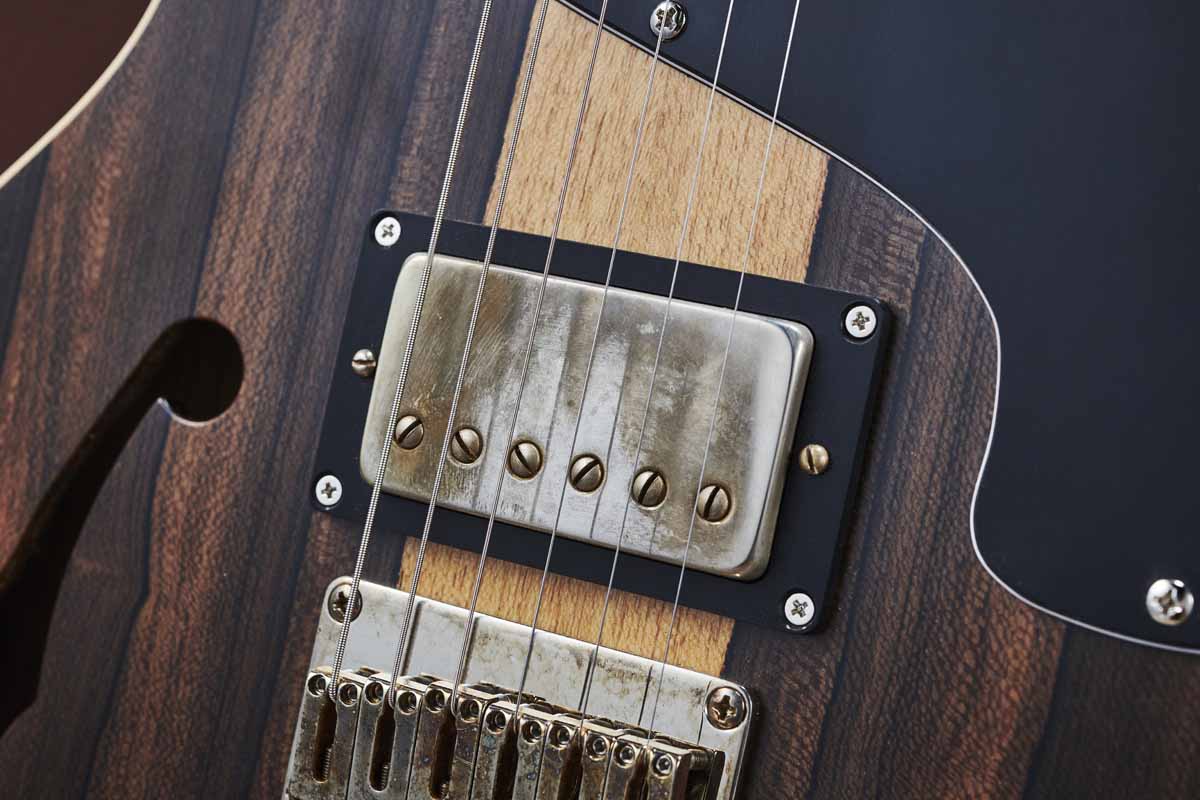
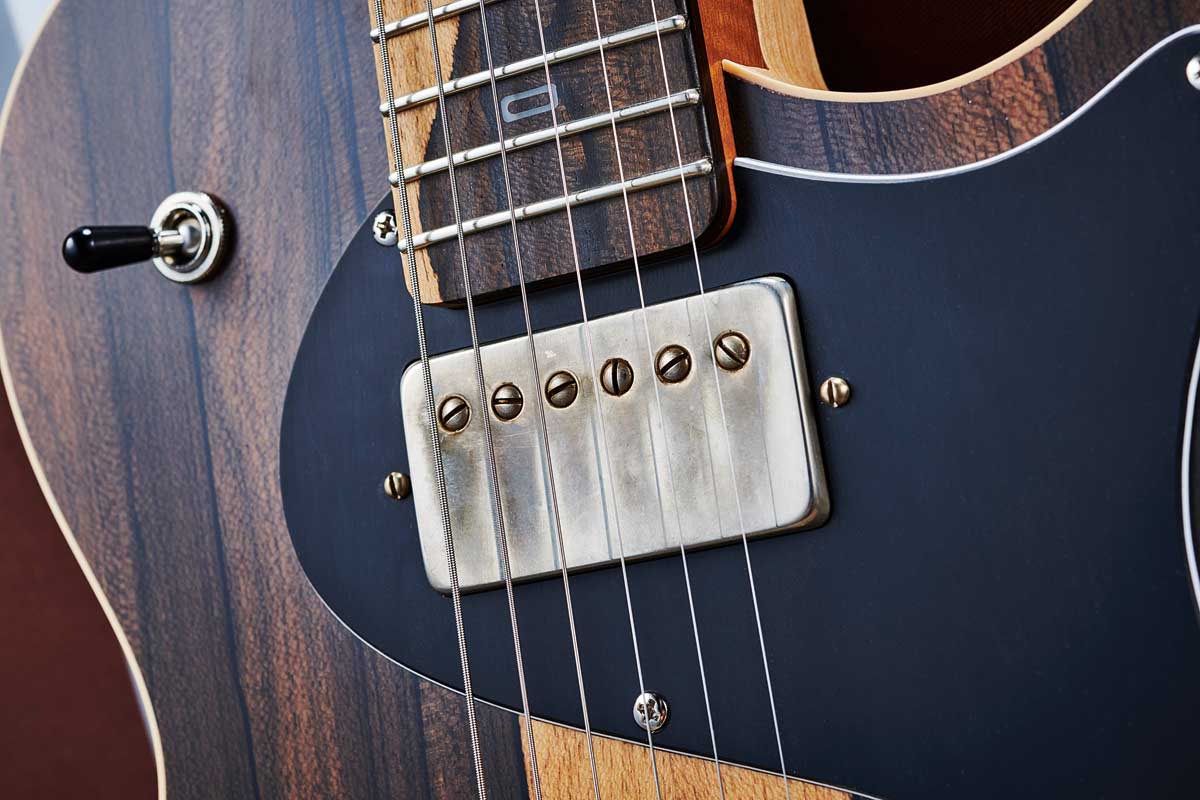
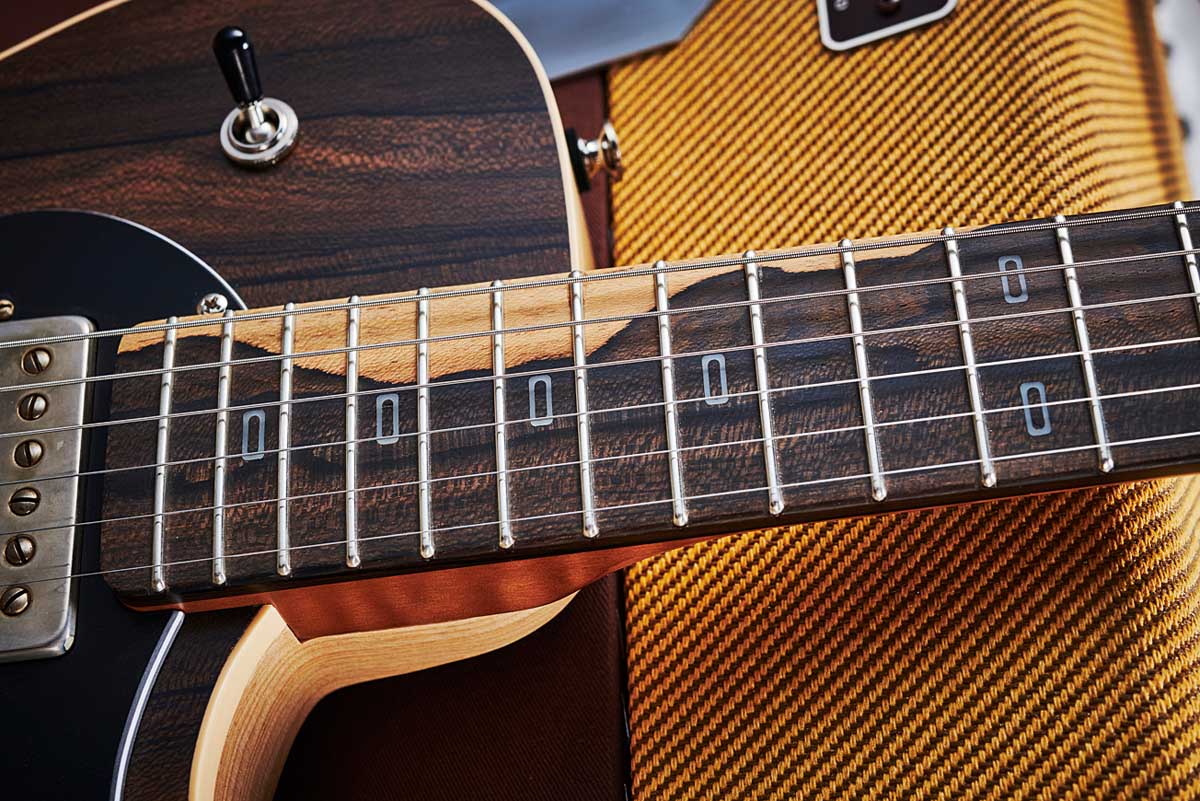
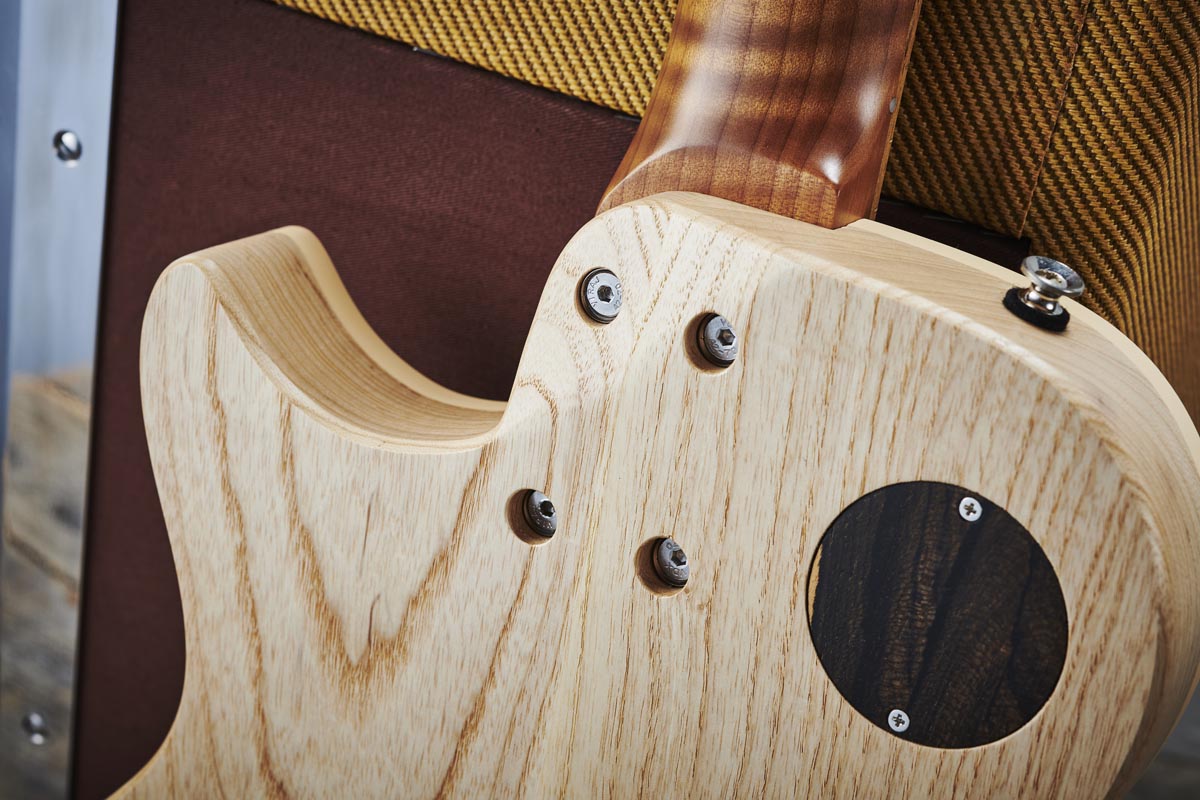
Both necks feel exceptional: very precise players with a standard string height as supplied (1.6mm on bass and treble sides). With light guitars like these, there’s always the worry that they may be slightly neck heavy when strapped on.
With a slippery strap both dive a little but with the overall light weight, certainly balanced by your forearm, it isn’t an issue, especially when the immediate gain is an almost acoustic-like loud ring unplugged. And that’s pretty much what we hear plugged in. The Standard has a crisp resonance with lots of detail, like a nice old Tele might well have sounded back in the day.
There’s plenty of power and push from the neck single coil that does stinging blues with bags of attack or, with volume and tone rolled way back, a nicely muted and damped jazz voice with your choice of clarity.
The bridge ’bucker is typical Bare Knuckle – an old-style honky attack with a subtly rounder high-end response, compared with the neck that adds a bite-y attack to cleans and pushes a lightly crunchy and responsive amp into touch-sensitive overdrive. It’s beautifully nuanced.
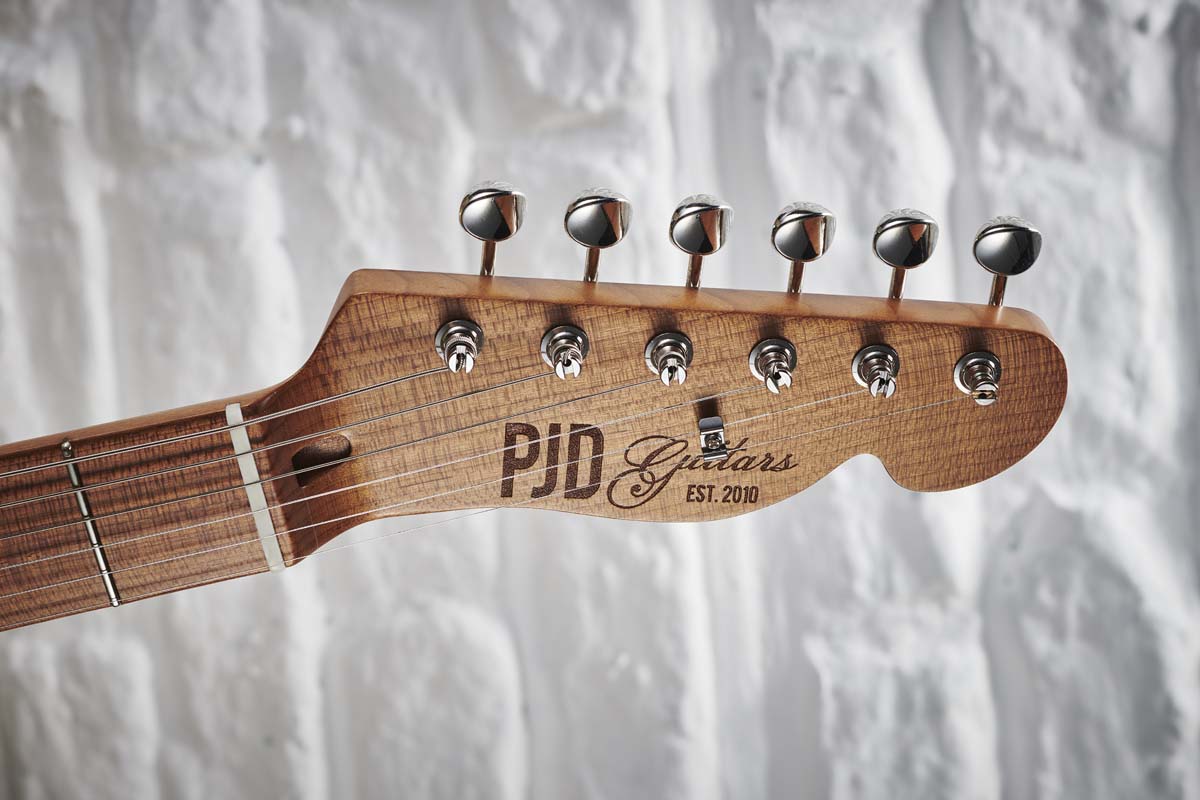

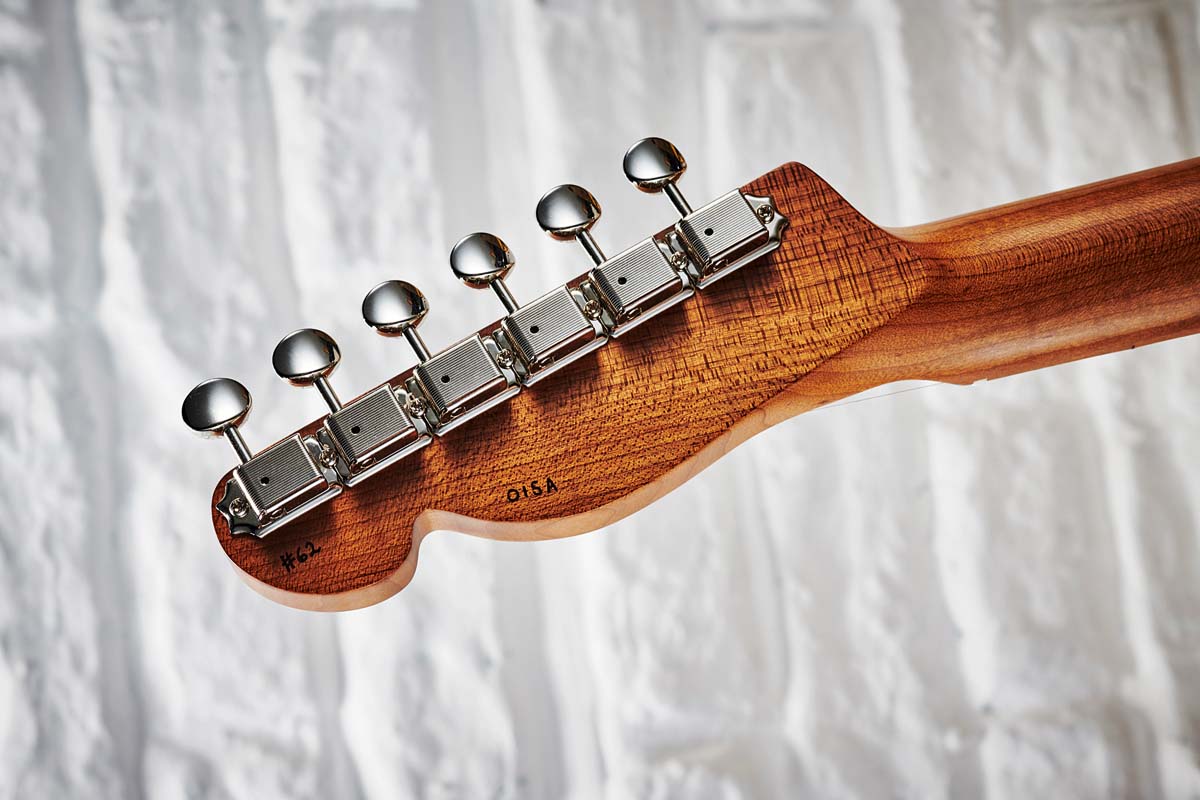
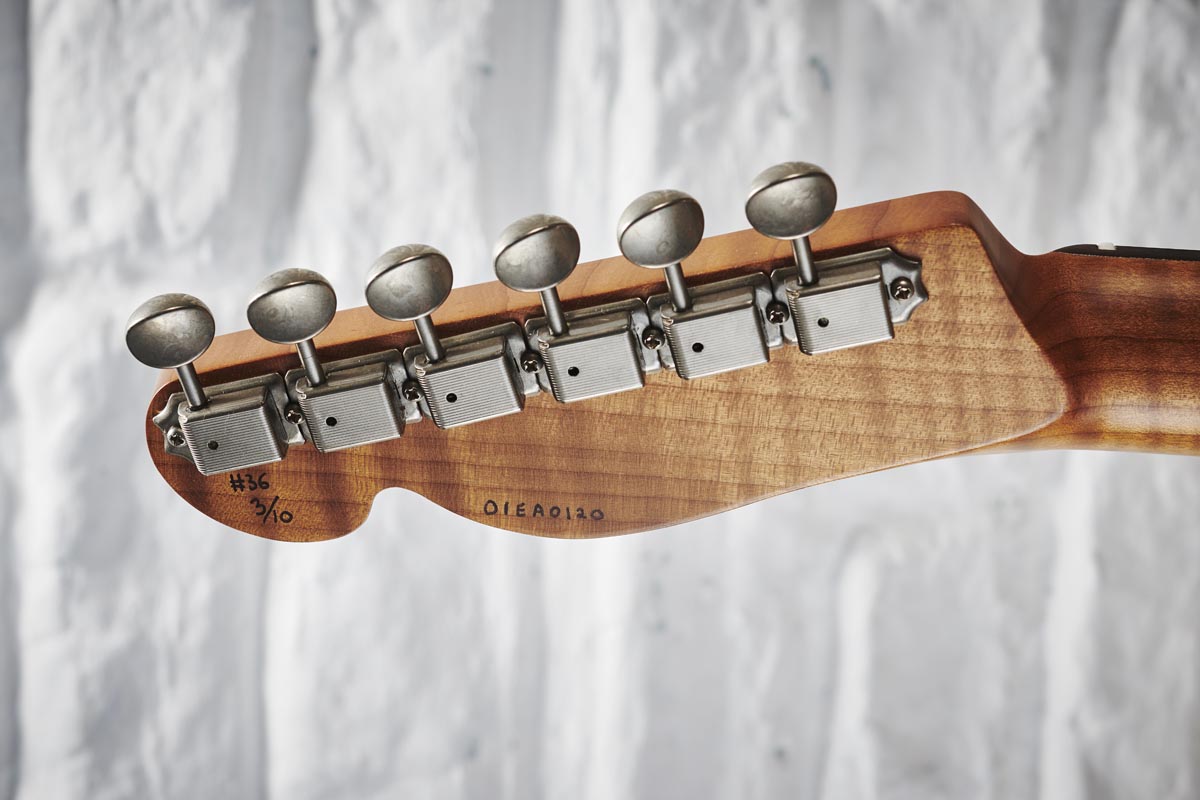
The Custom comes across as a more mature voice: less acoustically zinging but still very lively with a smoother attack, which relates to a bigger, stronger voice. In fact, the ’buckers sound as old as they look with a sonorous bell-like voice that contrasts the Standard’s more textured character.
And while the simple volume/tone drive seems to suit the plummier Standard, we can’t help thinking that a four-control layout on the Custom would really suit the twin-humbucker style – it does lean more on the Gibson side of the tracks than the Standard. It’s marginally heavier but still a lightweight build at 2.95kg (6.49lb) and just sits a little better with a strap.
We almost missed the pull-switch on the tone control, not previously a PJD feature, and here it splits just the bridge humbucker to single coil, voicing the slug coil.
It certainly adds another dimension, creating a less thick, more single coil-like mix, and there’s something very cool going on with this split at the bridge as you roll down the tone control with a crunchy amp voice – there’s a really vocal Peter Green-like voice, which is the final dollop of cream on a very tasty cake that is far from singular in its flavour.
Verdict
Aside from now being one of the largest electric guitar makers in the UK, PJD’s vision is – thankfully – not based solely on copying a classic. The Carey is shaping up to be an extremely flexible production platform pared down to its bare essentials in the Standard format or made into a far more exotic vision in the Custom 10th Anniversary.
The chambered light-ash back works very well with the different tops we have here – and there’s myriad wood combos that could be used, too, not least with different pickup sets. It’s a very viable design. These are both lively, vibrant guitars that ring for days. They’re great players with exceptional sounds, too. Really, what’s not to like?
Specs
PJD Carey Standard
- PRICE: £1,799 (inc case)
- ORIGIN: UK
- TYPE: Single-cutaway, chambered body electric
- BODY: 2-piece swamp ash back (chambered) w/ separate 2-piece top
- NECK: Quarter-sawn roasted figured maple, standard C profile, bolt-on
- SCALE LENGTH: 648mm (25.5”)
- NUT/WIDTH: Bone/42.7mm
- FINGERBOARD: Quarter-sawn roasted figured maple, rectangular black acrylic inlays, compound 254-305mm (10-12”) radius
- FRETS: 22, medium (Jescar FW55090)
- HARDWARE: Gotoh Strat-style hardtail bridge with block steel saddles and through-body stringing, vintage-style split-post tuners – nickel-plated
- STRING SPACING, BRIDGE: 53mm
- ELECTRICS: Bare Knuckle Boot Camp Old Guard soapbar single coil (neck) and humbucker (bridge), 3-way toggle pickup selector switch, master volume and tone controls
- WEIGHT (kg/lb): 2.63/5.79
- OPTIONS: No-charge options include rosewood fingerboard and f-hole. Look out for special-edition versions in different colours
- RANGE OPTIONS: PJD’s core guitar is the Carey Elite from £2,399
- LEFT-HANDERS: Yes, to order, same price
- FINISHES: Translucent White (as reviewed), Black and Natural – thin satin nitro-cellulose
PJD Carey Custom 10th Anniversary
- PRICE: £3,199 (inc case)
- ORIGIN: UK
- TYPE: Single-cutaway, chambered body electric
- BODY: 2-piece swamp ash back (chambered) w/ separate centre-joined ziracote top and single bass-side f-hole
- NECK: Quarter-sawn roasted flame maple, standard C profile, bolt-on
- SCALE LENGTH: 648mm (25.5”)
- NUT/WIDTH: Bone/42.63mm
- FINGERBOARD: Ziracote, rectangular grey acrylic inlays, compound 254-305mm (10-12”) radius
- FRETS: 22, medium (Jescar FW55090)
- HARDWARE: Gotoh Strat-style hardtail bridge with block steel saddles and through-body stringing, vintage-style split-post tuners – aged nickel-plated
- STRING SPACING, BRIDGE: 53mm
- ELECTRICS: Bare Knuckle Mule neck and bridge humbuckers with aged nickel covers, 3-way toggle pickup selector switch, master volume and tone controls (w/ coil-split for bridge pickup)
- WEIGHT (kg/lb): 2.95/6.49
- OPTIONS: Not on this 10th Anniversary model but the Custom will be retained, not least for custom one-off orders
- RANGE OPTIONS: See Carey Standard
- LEFT-HANDERS: Not this model (see Options)
- FINISHES: Natural (as reviewed) – thin satin nitro-cellulose
- CONTACT:

Dave Burrluck is one of the world’s most experienced guitar journalists, who started writing back in the '80s for International Musician and Recording World, co-founded The Guitar Magazine and has been the Gear Reviews Editor of Guitarist magazine for the past two decades. Along the way, Dave has been the sole author of The PRS Guitar Book and The Player's Guide to Guitar Maintenance as well as contributing to numerous other books on the electric guitar. Dave is an active gigging and recording musician and still finds time to make, repair and mod guitars, not least for Guitarist’s The Mod Squad.
“It holds its own purely as a playable guitar. It’s really cool for the traveling musician – you can bring it on a flight and it fits beneath the seat”: Why Steve Stevens put his name to a foldable guitar
“Finely tuned instruments with effortless playability and one of the best vibratos there is”: PRS Standard 24 Satin and S2 Standard 24 Satin review
